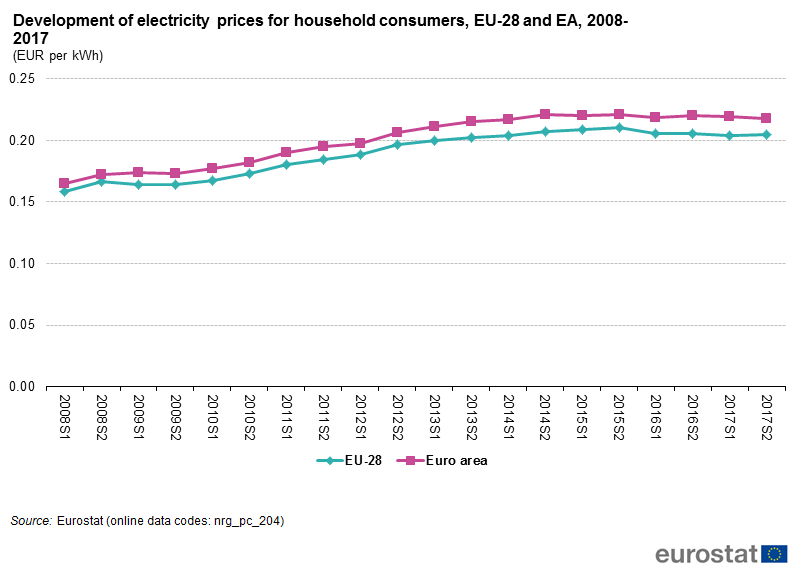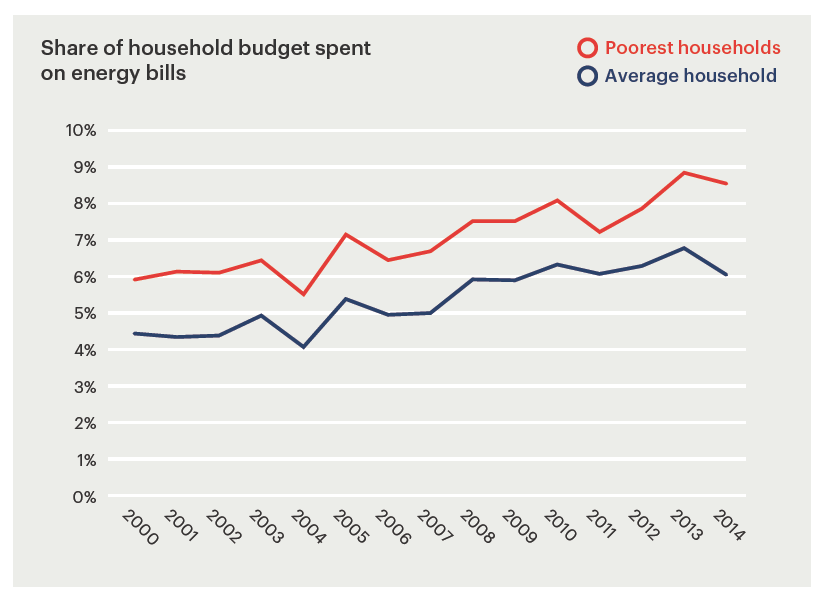News / 31.10.18
Energy poverty in Europe today

Energy poverty refers to the lack of access to energy, which affects millions in Europe today.
Three causes, one problem
1 – Rising energy prices
Rising energy prices increase energy poverty. With a long-term upward trend for energy prices (ACER, 2018), utility bills represent a heavier burden for European households, especially when coupled with energy waste due to inefficient houses, heating systems and products.

2 – Inefficient housing
The building stock in Europe is largely inefficient, with only 3% of buildings in the A category[1]. The vast majority of homes in Europe waste energy, inflate energy bills, and contribute to greenhouse gas emissions. This leads vulnerable households to renounce heating, or alternatively to consume large amounts of energy to stay warm or cool.

Source: BPIE
3 – Insufficient incomes
Incomes increasing slower than energy prices worsen energy poverty. The impacts of the financial crisis on energy poverty are clear, with a dramatic increase in arrears in utility bills observed in many European countries between 2008 and 2016 (+40% at EU level)[2].
Additionally, vulnerability to increased energy prices is higher for lower income households, for which energy represents a larger share of household expenditure.

Source: EU Commission
Energy poverty’s different causes require a holistic political approach, that includes energy policy. Short-term support is essential to protect households, but solutions to tackle the underlying causes are crucial.
For this reason, the Right to Energy coalition calls for the inclusion of the strongest possible measures to alleviate energy poverty in the Electricity Market Directive.
[1] Buildings Performance Institute Europe, 2018
[2] EPOV
More News

News / 26.02.25

